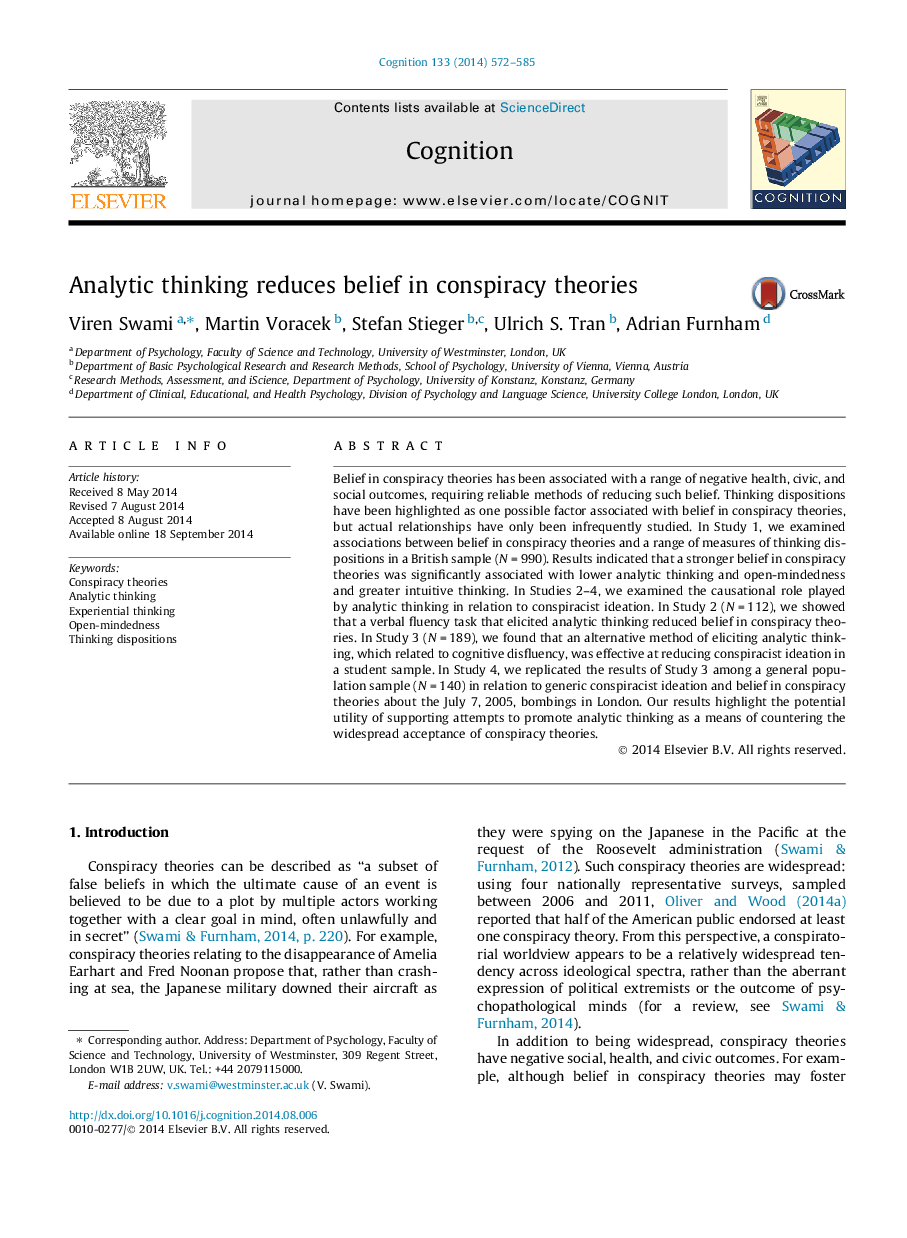| Article ID | Journal | Published Year | Pages | File Type |
|---|---|---|---|---|
| 926358 | Cognition | 2014 | 14 Pages |
•Analytic thinking reduces belief in conspiracy theories.•Stronger belief in conspiracy theories associated with lower analytic thinking.•Eliciting analytic thinking experimentally reduces conspiracist ideation.
Belief in conspiracy theories has been associated with a range of negative health, civic, and social outcomes, requiring reliable methods of reducing such belief. Thinking dispositions have been highlighted as one possible factor associated with belief in conspiracy theories, but actual relationships have only been infrequently studied. In Study 1, we examined associations between belief in conspiracy theories and a range of measures of thinking dispositions in a British sample (N = 990). Results indicated that a stronger belief in conspiracy theories was significantly associated with lower analytic thinking and open-mindedness and greater intuitive thinking. In Studies 2–4, we examined the causational role played by analytic thinking in relation to conspiracist ideation. In Study 2 (N = 112), we showed that a verbal fluency task that elicited analytic thinking reduced belief in conspiracy theories. In Study 3 (N = 189), we found that an alternative method of eliciting analytic thinking, which related to cognitive disfluency, was effective at reducing conspiracist ideation in a student sample. In Study 4, we replicated the results of Study 3 among a general population sample (N = 140) in relation to generic conspiracist ideation and belief in conspiracy theories about the July 7, 2005, bombings in London. Our results highlight the potential utility of supporting attempts to promote analytic thinking as a means of countering the widespread acceptance of conspiracy theories.
